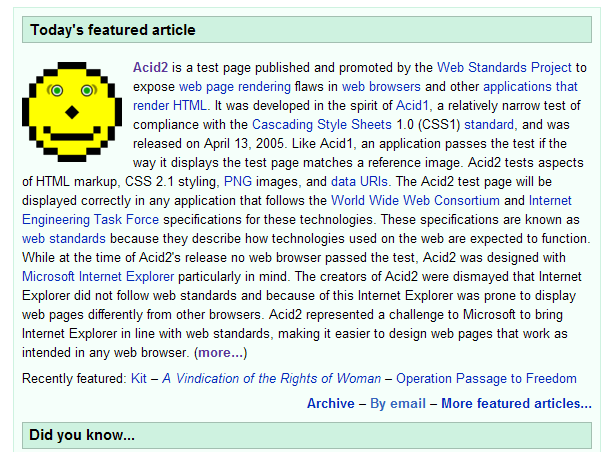There’s an interesting blog post on Open Source and recessions worth reading. Essentially the question is this: Does a recession have a negative impact on open source?
I’d say the answer is somewhat more complex than a simple yes/no. There are many different types of projects out there with entirely different circumstances. However I suspect a projects impact could be gaged on a few key aspects of it’s operation:
Purpose – The purpose of the project is likely the most critical aspect. For example, I don’t think there would be any significant impact on projects like the Linux kernel which is essential to many products out there including server infrastructure that powers much of the web and many companies computer systems. Then you have consumer products like TiVo, Google Android etc. Because it’s purpose is so broad there are enough people with a financial interest in seeing development continue. WebKit, Mozilla, Apache, are good examples of this. They have broad usage by many. Something specific to a more obscure task would have more trouble due to it’s more limited market.
Development Team – Of course for a project to succeed it needs one or more developers. During a recession one could theorize that many would be less inclined to participate. This may not necessarily so. First of all, quite a bit of open source development is loosely sponsored. Several projects have actual staff, paid employees who write open source code. For example Apple employees people to work on WebKit. Mozilla has staff working on Firefox. There are people paid to work on Linux (Red Hat, IBM, Novell, etc.) and many other open source projects. There are also companies who contribute some code that would be of strategic value to them. There’s also those who are simply willing to sponsor some work they want to see happen. All of which fund developers of larger open source projects. But would developers who aren’t sponsored or employed to code still participate? I theorize most still would as they don’t depend on it for income during good times, presumably a job during a recession wouldn’t generally prohibit participation and more than a job during years of economic growth. There’s also the impact of college students who participate partially for the educational aspect. The early 2000’s was a recession and still showed a fair amount of growth of open source. In fact many of todays stars really started to take shape during that period. For example:
Funding – Somewhat obvious: Funding is key. Who pays the developers (partially the last aspect I discussed)? Who pays for the projects needs (servers, etc.)? Many of the more popular projects (almost all of the above) have either an organization of for-profit company around built around it. That company often sponsors the needs of the project. Unless the needs of that companies product/service is no longer needed during the recession, funding likely remains. That’s partially the first aspect I discussed.
It’s my belief the larger and more popular open source projects would feel a minimal impact during a recession. I think history has shown this, and common sense agrees. They are mostly low development cost, adequately funded (often from diverse sources), stable, and have a broad team of developers. The projects that are in trouble are the ones who have very few or only 1 developer, even worse if they share the same sponsor, even worse if there is little community around the project. Most projects would generally experience a slight slowdown in development the degree would depend on the above. A few may go dormant for a period of time. Thanks to things like GPL licensing, another developer can pick up should there be a market in the open source ecosystem.
Overall I don’t think open source would be nearly as impacted as most businesses during a recession. The model is very different. Open source when successful has a community and many different sponsors. The diversity allows the project to survive even when recession causes some sponsors to need to reduce or eliminate involvement. Open Source also by definition is used to this type of environment. It’s used to developing on a budget, soliciting sponsors to help cover costs, etc.
The interesting thing about recession is that it impacts everyone, but the degree to which someone is impacted varies. For example construction and housing are generally harder hit than other industries. People tend to cut back on new home purchases before they cut back on other things. Each of those industries has computing needs, sometimes met by open source. This all feeds into the open source ecosystem.
I’d suggest that all of the projects I have mentioned here will do ok during a recession. Many with a slowdown, but all will still continue as long as they provide value. A notable situation is Mozilla’s income comes largely from Google which is based on ad revenue. During a recession and bubble bursting this would likely dramatically reduce the revenue brought in. This isn’t being ignored. As the 2006 Financial FAQ states:
First, the cash reserve is of course a form of insurance against the loss of income. We will continue to maintain enough of a reserve to allow us flexibility in making product decisions….
It seems that an open source project with a diverse stream of funding from individuals and companies of various industries, as well as developers in different situations is in the best position to survive.
It’s an interesting topic.


 Has anyone else noticed you can visit
Has anyone else noticed you can visit